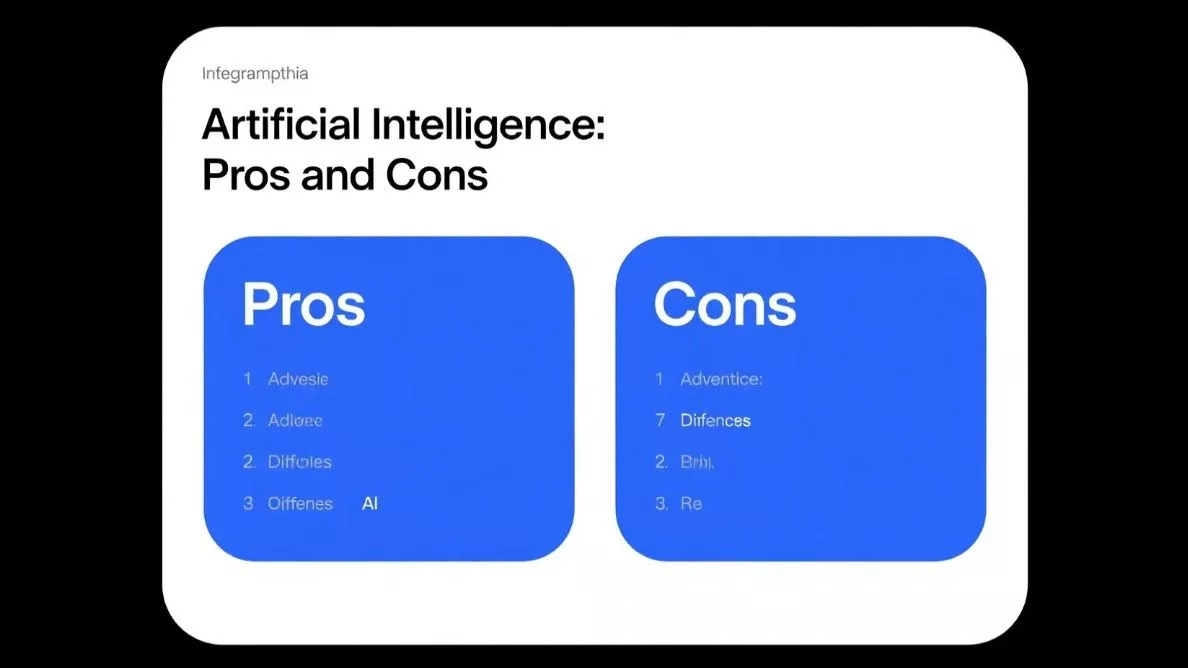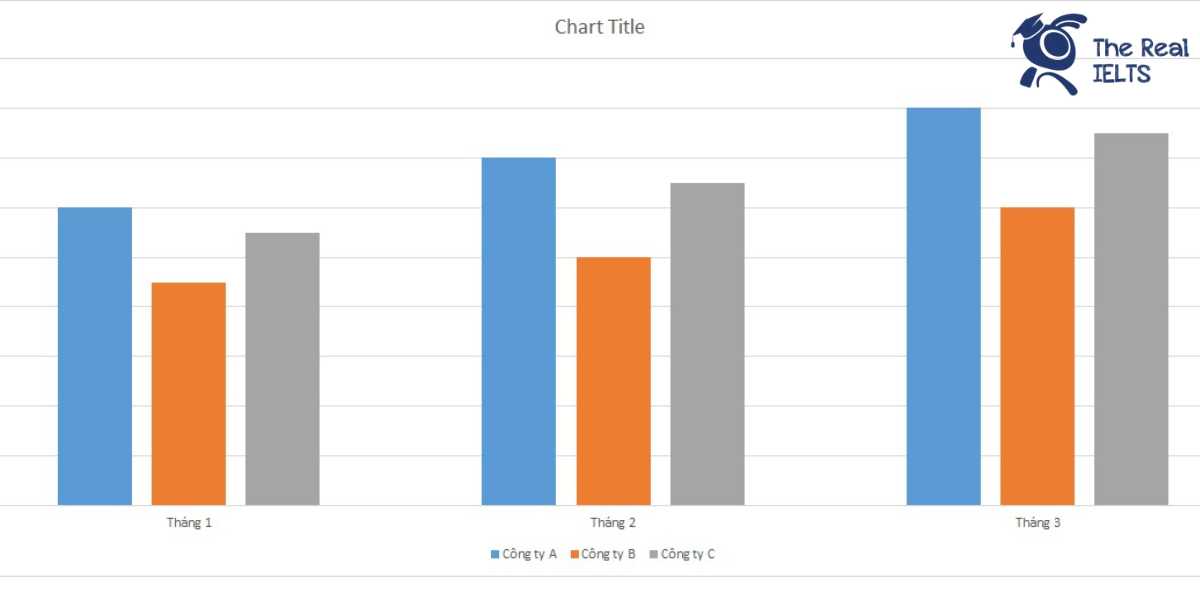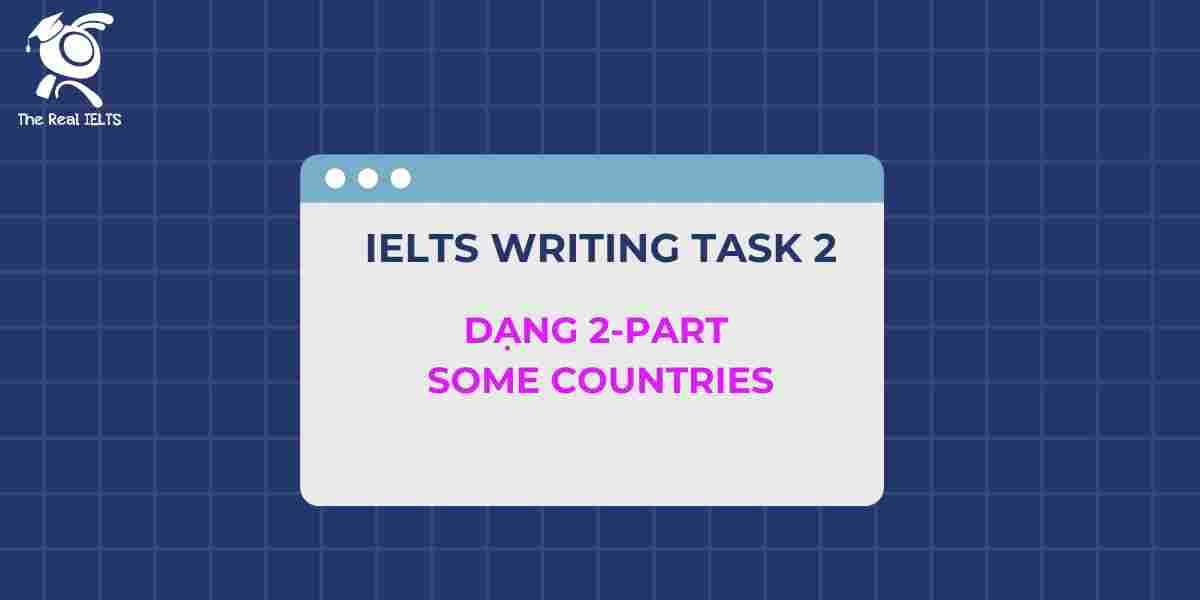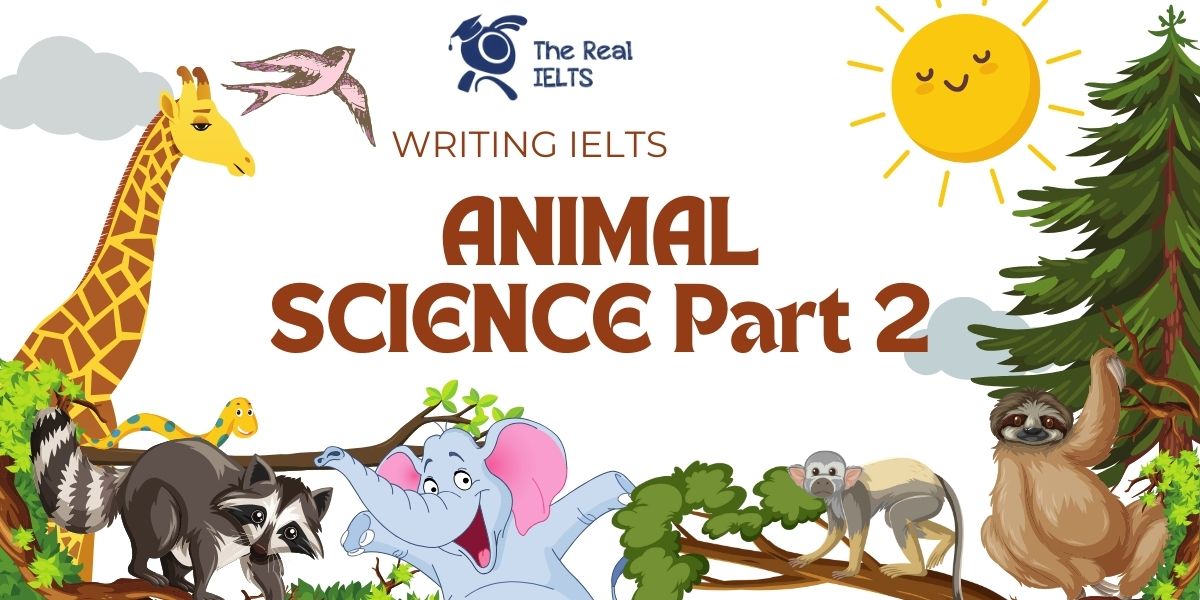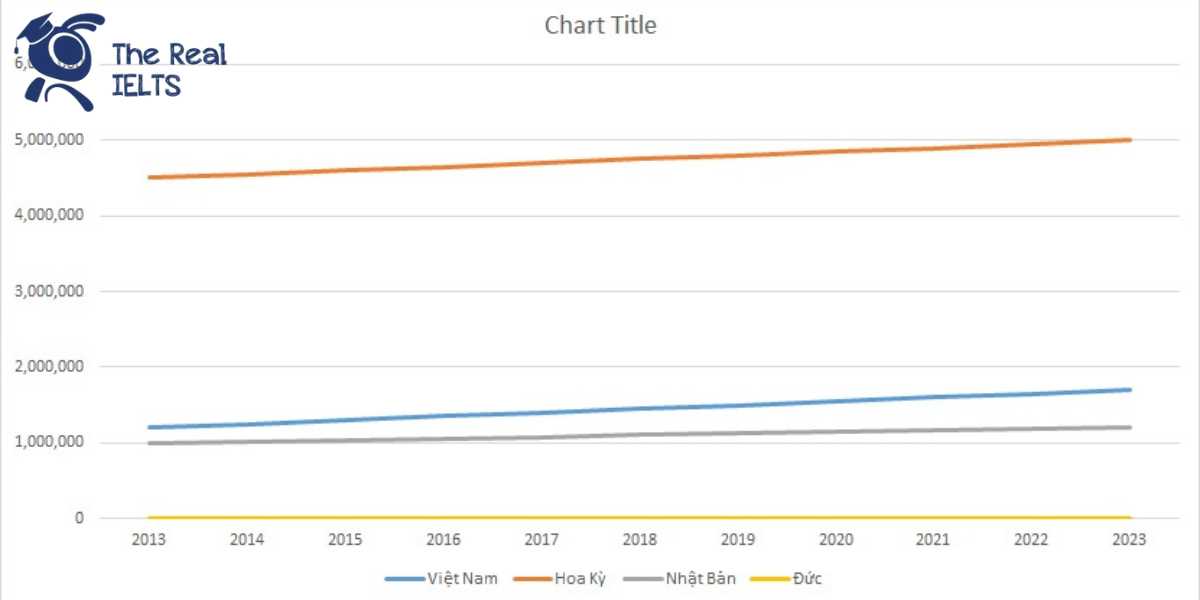Để đạt band điểm cao trong kỳ thi IELTS, kỹ năng viết luôn là thử thách lớn với người học. IELTS Writing Task 2 Phần 87 yêu cầu thí sinh thể hiện tư duy logic, vốn từ vựng phong phú và cấu trúc ngữ pháp chính xác trong bài luận học thuật. Việc nắm vững cách lập luận chặt chẽ, sử dụng từ ngữ phù hợp và quản lý thời gian hiệu quả sẽ giúp thí sinh tối ưu hóa điểm số, đáp ứng tiêu chí chấm thi nghiêm ngặt.
Đọc thêm: IELTS Writing Task 2 Phần 86
Đề 1 IELTS Writing Task 2
Some people think that children should be taught to be competitive in school to succeed in life. Others believe that teaching cooperation is more important for their development. Discuss both views and give your own opinion.
Bài essay (Band 6.5)
In today’s world, education plays a crucial role in shaping children’s future. While some argue that schools should focus on teaching competitiveness to prepare children for success, others believe that fostering cooperation is more beneficial. This essay will discuss both views and present my opinion.
On the one hand, teaching competitiveness helps children develop a strong drive to achieve their goals. In a competitive environment, students learn to work hard, set high standards, and overcome challenges. For example, academic competitions encourage students to improve their skills, which can prepare them for demanding careers. Moreover, being competitive can build confidence, as children learn to believe in their abilities. However, too much focus on competition may lead to stress and selfish behavior.
On the other hand, teaching cooperation promotes teamwork and social skills, which are essential for personal growth. Collaborative tasks, such as group projects, teach children to share ideas and support each other. For instance, schools in countries like Finland emphasize teamwork, leading to better communication skills among students. Cooperation also helps children build empathy, as they learn to understand others’ perspectives. However, some argue that it may reduce individual ambition.
In my opinion, cooperation is more important than competitiveness. While competition can motivate individuals, teamwork fosters harmonious relationships and prepares children for collaborative workplaces. Schools should balance both but prioritize cooperative skills to ensure well-rounded development.
In conclusion, although competitiveness can drive personal success, cooperation is more valuable for building social bonds and personal growth. A balanced approach is ideal, but cooperation should be the main focus.
Chấm điểm (4 tiêu chí)
Task Response: 6.5
The essay addresses both views and provides a clear opinion with relevant examples (e.g., Finland’s education system). However, the discussion lacks depth in exploring drawbacks or counterarguments, limiting it to Band 6.5.
Coherence and Cohesion: 6.5
The essay is logically organized with clear paragraphs and linking words (e.g., “On the one hand,” “Moreover”). Transitions are adequate, but some ideas feel disconnected, and repetition of points (e.g., personal growth) reduces cohesion.
Lexical Resource: 6.5
Vocabulary is appropriate with some academic phrases (e.g., crucial role, harmonious relationships). However, word repetition (e.g., “skills,” “cooperation”) and limited use of synonyms prevent a higher score.
Grammatical Range and Accuracy: 6.5
The essay uses a mix of simple and complex sentences (e.g., relative clauses, conditional sentences). Minor errors, such as article misuse or awkward phrasing, do not impede understanding but limit the score.
Phân tích từ vựng
- Crucial role
- Nghĩa tiếng Việt: Vai trò quan trọng
- Giải thích: Cụm từ này dùng để nhấn mạnh tầm quan trọng của một yếu tố trong ngữ cảnh học thuật, thường xuất hiện khi thảo luận về giáo dục hoặc xã hội. Ví dụ: “Teachers play a crucial role in child development.”
- Strong drive
- Nghĩa tiếng Việt: Động lực mạnh mẽ
- Giải thích: Cụm này mang tính học thuật, mô tả sự quyết tâm đạt được mục tiêu. Ví dụ: “A strong drive is needed to succeed in competitive fields.”
- Essential for personal growth
- Nghĩa tiếng Việt: Thiết yếu cho sự phát triển cá nhân
- Giải thích: Cụm này dùng để chỉ yếu tố quan trọng cho sự phát triển, phù hợp trong bài viết về giáo dục. Ví dụ: “Reading is essential for personal growth.”
- Harmonious relationships
- Nghĩa tiếng Việt: Mối quan hệ hòa hợp
- Giải thích: Cụm từ này dùng để mô tả các mối quan hệ tích cực, thường xuất hiện trong ngữ cảnh xã hội hoặc giáo dục. Ví dụ: “Teamwork fosters harmonious relationships.”
- Main focus
- Nghĩa tiếng Việt: Trọng tâm chính
- Giải thích: Cụm này dùng để nhấn mạnh ưu tiên hoặc mục tiêu chính trong một vấn đề. Ví dụ: “The main focus of schools should be student well-being.”
Phân tích ngữ pháp
- Relative clauses (e.g., “Collaborative tasks, such as group projects, teach children to share ideas”)
- Giải thích tiếng Việt: Mệnh đề quan hệ được dùng đúng để bổ sung thông tin, làm câu phức tạp hơn. Tuy nhiên, cần đa dạng hóa cấu trúc (ví dụ: dùng mệnh đề phân từ) để tăng điểm.
- Article misuse (e.g., “leading to better communication skills among students” could be “leading to the better communication skills” for specificity)
- Giải thích tiếng Việt: Lỗi thiếu mạo từ “the” khi đề cập đến một nhóm cụ thể. Đây là lỗi nhỏ nhưng ảnh hưởng đến độ chính xác, đặc biệt ở Band 7.
- Conditional sentences (e.g., “However, too much focus on competition may lead to stress and selfish behavior”)
- Giải thích tiếng Việt: Câu điều kiện dùng đúng để dự đoán hậu quả. Tuy nhiên, bài viết thiếu sự đa dạng trong các loại câu điều kiện (ví dụ: loại 2 hoặc 3) để thể hiện phạm vi ngữ pháp rộng hơn.
Tổng kết & gợi ý cải thiện
The essay achieves Band 6.5 due to its clear structure, relevant arguments, and appropriate vocabulary. However, it falls short of Band 7 because of limited depth in analysis, repetitive vocabulary (e.g., “skills”), and minor grammatical errors (e.g., article misuse).
Gợi ý cải thiện để đạt Band 7:
- Task Response: Deepen the discussion by addressing counterarguments (e.g., how competition fosters teamwork in some cases) or providing specific solutions.
- Coherence: Use varied linking devices (e.g., “In contrast,” “Consequently”) and avoid repeating ideas.
- Lexical Resource: Incorporate synonyms (e.g., “motivation” for “drive”) and collocations (e.g., “nurture teamwork skills”).
- Grammar: Use diverse structures (e.g., passive voice, inversion) and eliminate minor errors through careful proofreading.
Đề 2 IELTS Writing Task 2
In some countries, the government spends a large amount of money on arts and culture, such as museums and theaters. Some people think this is a waste of money and it should be spent on other priorities like healthcare. To what extent do you agree or disagree?
Bài essay (Band 6.5)
In many countries, governments allocate significant funds to arts and culture, such as museums and theaters. While some argue that this is a waste of money and priorities like healthcare should be funded instead, I believe that supporting the arts is important, though healthcare should remain a top priority.
Firstly, arts and culture play a vital role in society. Museums and theaters preserve history and traditions, which strengthen national identity. For example, visiting a museum can educate people about their heritage, fostering a sense of pride. Moreover, the arts can boost the economy by attracting tourists. Cities with famous cultural sites often benefit from increased tourism revenue, which can support other public services. Therefore, funding the arts is not entirely wasteful.
However, healthcare is undeniably more pressing. Many people lack access to basic medical services, and this can lead to serious health issues. For instance, underfunded hospitals may struggle to provide adequate care, resulting in preventable deaths. Allocating more funds to healthcare would address immediate needs like improving facilities or hiring more doctors. While the arts have benefits, they are less urgent compared to saving lives.
In conclusion, I partly agree that spending on arts and culture can be justified due to its cultural and economic benefits. However, healthcare should be prioritized because it directly affects people’s well-being. A balanced approach, where both sectors receive funding but healthcare gets more, is the best solution.
Chấm điểm (4 tiêu chí)
Task Response: 6.5
The essay addresses the question, presenting a clear opinion and discussing both sides. Ideas are relevant, but some arguments (e.g., tourism benefits) are underdeveloped, limiting depth and preventing a Band 7.
Coherence and Cohesion: 6.5
The essay is logically organized with clear paragraphs and linking words (e.g., “Firstly,” “Moreover”). However, transitions between ideas within paragraphs are sometimes abrupt, and more cohesive devices could enhance flow.
Lexical Resource: 6.5
The vocabulary is appropriate, with academic phrases like “vital role” and “address immediate needs.” However, word repetition (e.g., “healthcare” and “arts”) and limited use of synonyms restrict the score.
Grammatical Range and Accuracy: 6.5
The essay uses a mix of simple and complex sentences with minor errors (e.g., article misuse: “a sense of pride” could be “sense of pride”). Greater variety in sentence structures would improve the score.
Phân tích từ vựng
- Vital role
- Nghĩa tiếng Việt: Vai trò quan trọng.
- Giải thích: Cụm từ này dùng trong văn học thuật để nhấn mạnh tầm quan trọng của một yếu tố. Trong bài, nó được dùng để nói về vai trò của nghệ thuật và văn hóa trong xã hội.
- Strengthen national identity
- Nghĩa tiếng Việt: Củng cố bản sắc dân tộc.
- Giải thích: Cụm này phổ biến trong các bài viết về văn hóa, ám chỉ việc bảo tồn giá trị truyền thống. Nó được dùng để giải thích lợi ích của bảo tàng.
- Boost the economy
- Nghĩa tiếng Việt: Thúc đẩy kinh tế.
- Giải thích: Cụm từ này dùng để chỉ tác động tích cực đến tài chính hoặc tăng trưởng kinh tế. Trong bài, nó nhấn mạnh lợi ích kinh tế từ du lịch văn hóa.
- Pressing
- Nghĩa tiếng Việt: Cấp bách.
- Giải thích: Từ này mang tính học thuật, dùng để mô tả vấn đề cần giải quyết ngay. Trong bài, nó được dùng để nhấn mạnh tầm quan trọng của y tế so với nghệ thuật.
- Address immediate needs
- Nghĩa tiếng Việt: Giải quyết nhu cầu cấp thiết.
- Giải thích: Cụm này dùng để chỉ việc tập trung vào các vấn đề ưu tiên. Trong bài, nó ám chỉ việc cải thiện y tế để đáp ứng nhu cầu cơ bản.
- Balanced approach
- Nghĩa tiếng Việt: Cách tiếp cận cân bằng.
- Giải thích: Cụm này dùng để đề xuất giải pháp dung hòa các quan điểm. Trong bài, nó được dùng ở kết luận để nhấn mạnh cần hỗ trợ cả y tế và nghệ thuật.
Phân tích ngữ pháp
- Complex sentences
- Giải thích tiếng Việt: Bài sử dụng câu phức, ví dụ: “For example, visiting a museum can educate people about their heritage, fostering a sense of pride.” Cấu trúc này tăng tính học thuật, nhưng bài thiếu sự đa dạng trong cách kết hợp mệnh đề, giới hạn điểm ở 6.5.
- Article misuse
- Giải thích tiếng Việt: Lỗi nhỏ trong mạo từ, ví dụ: “a sense of pride” nên là “sense of pride” vì cụm này thường không cần mạo từ. Lỗi này không nghiêm trọng nhưng ảnh hưởng đến độ chính xác, kéo điểm xuống dưới Band 7.
- Modal verbs
- Giải thích tiếng Việt: Bài dùng động từ khuyết thiếu như “can” (e.g., “can educate people,” “can support other public services”). Cách dùng đúng nhưng lặp lại, thiếu sự thay đổi sang “should” hoặc “might,” hạn chế phạm vi ngữ pháp.
- Subject-verb agreement
- Giải thích tiếng Việt: Một lỗi nhỏ trong “underfunded hospitals may struggle,” đúng nhưng có thể dùng “struggle to provide care” để rõ ràng hơn. Lỗi này nhẹ nhưng góp phần ngăn điểm đạt Band 7.
Tổng kết & gợi ý cải thiện
Tổng kết: Bài viết đạt Band 6.5 nhờ cấu trúc rõ ràng, lập luận phù hợp, và từ vựng học thuật vừa phải. Tuy nhiên, các ý chưa được phát triển sâu (e.g., thiếu ví dụ cụ thể về lợi ích kinh tế từ nghệ thuật), một số lỗi ngữ pháp nhỏ (article misuse, subject-verb agreement), và sự lặp từ/cấu trúc làm hạn chế điểm số. Cohesion cũng cần cải thiện để chuyển ý mượt mà hơn.
Gợi ý cải thiện lên Band 7:
- Phát triển ý chi tiết hơn, ví dụ: nêu số liệu giả định như “tourism from cultural sites generates millions annually” để tăng tính thuyết phục.
- Đa dạng từ vựng, tránh lặp từ như “healthcare” (thay bằng “medical services”) hoặc “arts” (thay bằng “cultural initiatives”).
- Sử dụng cấu trúc ngữ pháp phức tạp hơn, như câu điều kiện (“If governments prioritized healthcare…”) hoặc mệnh đề quan hệ (“which could enhance…”).
- Cải thiện cohesion bằng cách dùng từ nối linh hoạt hơn (e.g., “In addition,” “Conversely”) và đảm bảo ý liên kết chặt chẽ với nhau.
Đề 3 IELTS Writing Task 2
Some people believe that technology has made our lives more stressful, while others think it has made life easier. Discuss both views and give your own opinion.
Bài essay (Band 6.5)
In recent years, technology has transformed the way we live, but its impact on stress levels is a topic of debate. This essay will discuss both perspectives before presenting my own view.
On one hand, some argue that technology increases stress. The constant use of smartphones and social media can lead to information overload, as people are bombarded with notifications and news. For example, many individuals feel pressured to respond to work emails outside office hours, which reduces their personal time. Additionally, the fast-paced nature of modern technology can make people feel anxious about keeping up with new devices or software updates.
On the other hand, others believe technology simplifies life. Online tools and apps, such as navigation systems or online banking, save time and effort. For instance, people can shop or pay bills from home, which enhances convenience and efficiency. Moreover, technology enables remote working, allowing individuals to achieve a better work-life balance. This flexibility can reduce stress for those who manage their time effectively.
In my opinion, while technology can create stress due to its demands, it generally makes life easier by providing tools for efficiency and flexibility. The key is to use technology wisely to avoid its negative effects.
In conclusion, although technology may contribute to stress through constant connectivity, its benefits in saving time and improving flexibility outweigh the drawbacks. People should learn to manage their technology use to maximize its advantages.
Chấm điểm (4 tiêu chí)
Task Response: 6.5
The essay addresses both views and provides a clear opinion, supported by relevant examples (e.g., work emails, online banking). However, the arguments are somewhat general, and deeper analysis or specific examples could strengthen the response to reach Band 7.
Coherence and Cohesion: 6.5
The essay is well-organized with a clear introduction, body paragraphs, and conclusion. Linking words like “additionally” and “moreover” are used effectively, but transitions between ideas could be smoother, and some repetition (e.g., “stress”) affects cohesion slightly.
Lexical Resource: 6.5
The vocabulary is appropriate for Band 6.5, with academic phrases like information overload and convenience and efficiency. However, word repetition (e.g., “technology,” “stress”) and limited use of synonyms prevent a higher score.
Grammatical Range and Accuracy: 6.5
The essay uses a mix of simple and complex sentences, including conditionals and relative clauses. Minor errors, such as preposition misuse (e.g., “anxious about keeping up” instead of “anxious about keeping up with”), do not hinder meaning but limit the score.
Phân tích từ vựng
- Information overload
- Nghĩa: Quá tải thông tin.
- Giải thích: Cụm từ học thuật, dùng để chỉ tình trạng tiếp nhận quá nhiều thông tin, thường gây căng thẳng. Trong bài, nó mô tả tác động tiêu cực của công nghệ như mạng xã hội.
- Fast-paced nature
- Nghĩa: Bản chất nhịp độ nhanh.
- Giải thích: Cụm từ này được dùng để mô tả tốc độ nhanh của công nghệ hiện đại, phù hợp trong văn học thuật khi thảo luận về thay đổi xã hội hoặc công nghệ.
- Convenience and efficiency
- Nghĩa: Sự tiện lợi và hiệu quả.
- Giải thích: Cụm từ học thuật, thường dùng để nhấn mạnh lợi ích của công nghệ hoặc hệ thống trong việc tiết kiệm thời gian và công sức.
- Work-life balance
- Nghĩa: Cân bằng công việc và cuộc sống.
- Giải thích: Cụm từ phổ biến trong ngữ cảnh học thuật, dùng để nói về khả năng quản lý thời gian giữa công việc và đời sống cá nhân, như lợi ích của làm việc từ xa.
- Contribute to stress
- Nghĩa: Góp phần gây căng thẳng.
- Giải thích: Cụm động từ này được dùng để chỉ nguyên nhân gây ra một vấn đề, như căng thẳng do công nghệ. Nó phù hợp với văn nghị luận.
Phân tích ngữ pháp
- Which reduces their personal time
- Giải thích: Mệnh đề quan hệ “which” được dùng đúng để bổ nghĩa cho hành động trả lời email công việc. Cấu trúc này giúp câu văn học thuật hơn, nhưng bài viết có thể dùng thêm các mệnh đề quan hệ khác để tăng sự đa dạng.
- Can make people feel anxious
- Giải thích: Động từ khuyết thiếu “can” được dùng đúng để diễn tả khả năng. Tuy nhiên, bài viết thiếu các động từ khuyết thiếu khác (e.g., “might,” “should”) để tăng tính linh hoạt.
- Allowing individuals to achieve
- Giải thích: Dạng phân từ hiện tại “allowing” được dùng đúng để diễn tả kết quả của làm việc từ xa. Cấu trúc này ngắn gọn và phù hợp, nhưng bài viết có thể bổ sung thêm cấu trúc phân từ khác.
- Minor preposition error (e.g., “anxious about keeping up”)
- Giải thích: Lỗi nhỏ về giới từ, như dùng “anxious about keeping up” thay vì “anxious about keeping up with.” Lỗi này không ảnh hưởng lớn đến nghĩa nhưng làm giảm độ chính xác ngữ pháp.
Tổng kết & gợi ý cải thiện
The essay achieves Band 6.5 due to its clear structure, relevant arguments, and appropriate vocabulary, but it is limited by general arguments, repetitive word choices, and minor grammatical errors. To reach Band 7:
- Task Response: Provide more specific examples or data to deepen the analysis of both views.
- Coherence and Cohesion: Use varied linking devices (e.g., “conversely,” “thus”) for smoother transitions and reduce repetition.
- Lexical Resource: Incorporate synonyms (e.g., replace “technology” with “digital tools” or “innovations”) to enhance variety.
- Grammatical Range and Accuracy: Use more complex structures, such as passive voice or mixed conditionals, and eliminate minor errors like preposition misuse.
Đề 4 IELTS Writing Task 2
Some people believe that children should be taught practical skills, such as cooking or budgeting, at school, while others think schools should focus on academic subjects. Discuss both views and give your own opinion.
Bài essay (Band 6.5)
Education plays a vital role in preparing children for life. Some argue that schools should teach practical skills like cooking or budgeting, while others believe academic subjects should remain the priority. This essay will discuss both views and explain why I think a balance of both is necessary.
On the one hand, supporters of practical skills argue that they equip students for daily life. For example, learning to cook can promote healthy eating habits, while budgeting skills help young people manage finances effectively. These abilities are essential for independence, as many young adults struggle without them. However, teaching such skills may reduce time for academic subjects, which are crucial for higher education.
On the other hand, those who prioritize academic subjects believe they lay the foundation for future success. Subjects like math and science develop critical thinking and problem-solving skills, which are valued in most careers. For instance, strong academic performance can open doors to university opportunities. Yet, focusing only on academics may leave students unprepared for practical challenges like managing a household.
In my opinion, schools should combine both approaches. By integrating practical skills into the curriculum, students can develop well-rounded abilities without sacrificing academic learning. For example, short workshops on budgeting could complement math classes. This balance ensures students are ready for both professional and personal life.
In conclusion, while academic subjects are important for career prospects, practical skills are equally vital for everyday life. Schools should adopt a balanced curriculum to prepare students effectively for their future.
Chấm điểm (4 tiêu chí)
Task Response: 6.5
The essay addresses both views and provides a clear opinion with relevant examples. However, the discussion lacks depth in exploring drawbacks of each approach, which limits the score to 6.5.
Coherence and Cohesion: 6.5
The essay is logically organized with clear paragraphing and basic linking words (e.g., “On the one hand,” “For example”). Transitions could be more varied, and some ideas feel slightly repetitive, aligning with Band 6.5.
Lexical Resource: 6.5
The vocabulary is appropriate with some academic phrases (e.g., equip students for daily life, lay the foundation for future success). Minor repetition and limited use of synonyms prevent a higher score.
Grammatical Range and Accuracy: 6.5
The essay uses a mix of simple and complex sentences with generally accurate grammar. Minor errors (e.g., article misuse, awkward phrasing) and limited variety in complex structures keep the score at 6.5.
Phân tích từ vựng
- Equip students for daily life
- Nghĩa: Trang bị cho học sinh kỹ năng sống hàng ngày.
- Giải thích: Cụm từ học thuật, thường dùng khi nói về giáo dục hoặc phát triển kỹ năng. “Equip” thể hiện sự chuẩn bị kỹ lưỡng, phù hợp với văn nghị luận.
- Ví dụ: “Schools should equip students for daily life through practical lessons.”
- Manage finances effectively
- Nghĩa: Quản lý tài chính hiệu quả.
- Giải thích: Cụm này dùng trong ngữ cảnh tài chính hoặc giáo dục, thể hiện kỹ năng thực tiễn. Nó mang tính trang trọng và phổ biến trong IELTS.
- Ví dụ: “Budgeting skills help young people manage finances effectively.”
- Lay the foundation for future success
- Nghĩa: Đặt nền móng cho thành công tương lai.
- Giải thích: Một cụm từ học thuật, dùng để nhấn mạnh vai trò của giáo dục hoặc kỹ năng trong việc xây dựng tương lai. Nó phù hợp với văn phong IELTS.
- Ví dụ: “Academic subjects lay the foundation for future success in careers.”
- Open doors to university opportunities
- Nghĩa: Mở ra cơ hội vào đại học.
- Giải thích: Cụm này mang tính hình ảnh, dùng để nói về lợi ích của học tập. Nó phổ biến trong bài viết về giáo dục và cơ hội.
- Ví dụ: “Good grades can open doors to university opportunities.”
- Develop well-rounded abilities
- Nghĩa: Phát triển kỹ năng toàn diện.
- Giải thích: Cụm từ học thuật, dùng để chỉ sự phát triển cân bằng giữa các lĩnh vực. “Well-rounded” nhấn mạnh sự đa dạng trong năng lực.
- Ví dụ: “A balanced curriculum helps students develop well-rounded abilities.”
Phân tích ngữ pháp
- Complex sentences with “while”
- Giải thích: Cấu trúc “While + clause, main clause” được dùng đúng (e.g., “While academic subjects are important…”). Đây là cấu trúc phổ biến ở Band 6–7, thể hiện sự tương phản. Tuy nhiên, bài viết dùng ít cấu trúc phức tạp khác, thiếu đa dạng.
- Article errors
- Giải thích: Bài viết có lỗi nhỏ về mạo từ, ví dụ “time for academic subjects” đúng nhưng “foundation for future success” nên là “the foundation” để rõ ràng hơn. Lỗi này phổ biến ở Band 6.5, làm giảm độ chính xác.
- Modal verbs like “can”
- Giải thích: Cấu trúc “can + verb” (e.g., “can promote healthy eating habits”) được dùng đúng để thể hiện khả năng. Tuy nhiên, bài viết lạm dụng “can” mà không dùng “could” hoặc “might,” khiến ngữ pháp đơn điệu.
Tổng kết & gợi ý cải thiện
The essay achieves Band 6.5 due to its clear structure, relevant ideas, and appropriate vocabulary, but it lacks depth and linguistic variety. To reach Band 7:
- Task Response: Provide deeper analysis, e.g., discuss specific challenges of teaching practical skills (e.g., cost, teacher training).
- Coherence: Use varied linking phrases (e.g., “In contrast,” “Consequently”) to improve flow.
- Lexical Resource: Incorporate synonyms (e.g., “foster” instead of “develop”) and avoid repetition.
- Grammar: Use diverse structures, such as conditionals (“If schools integrate skills…”) or passive voice, and minimize minor errors.



